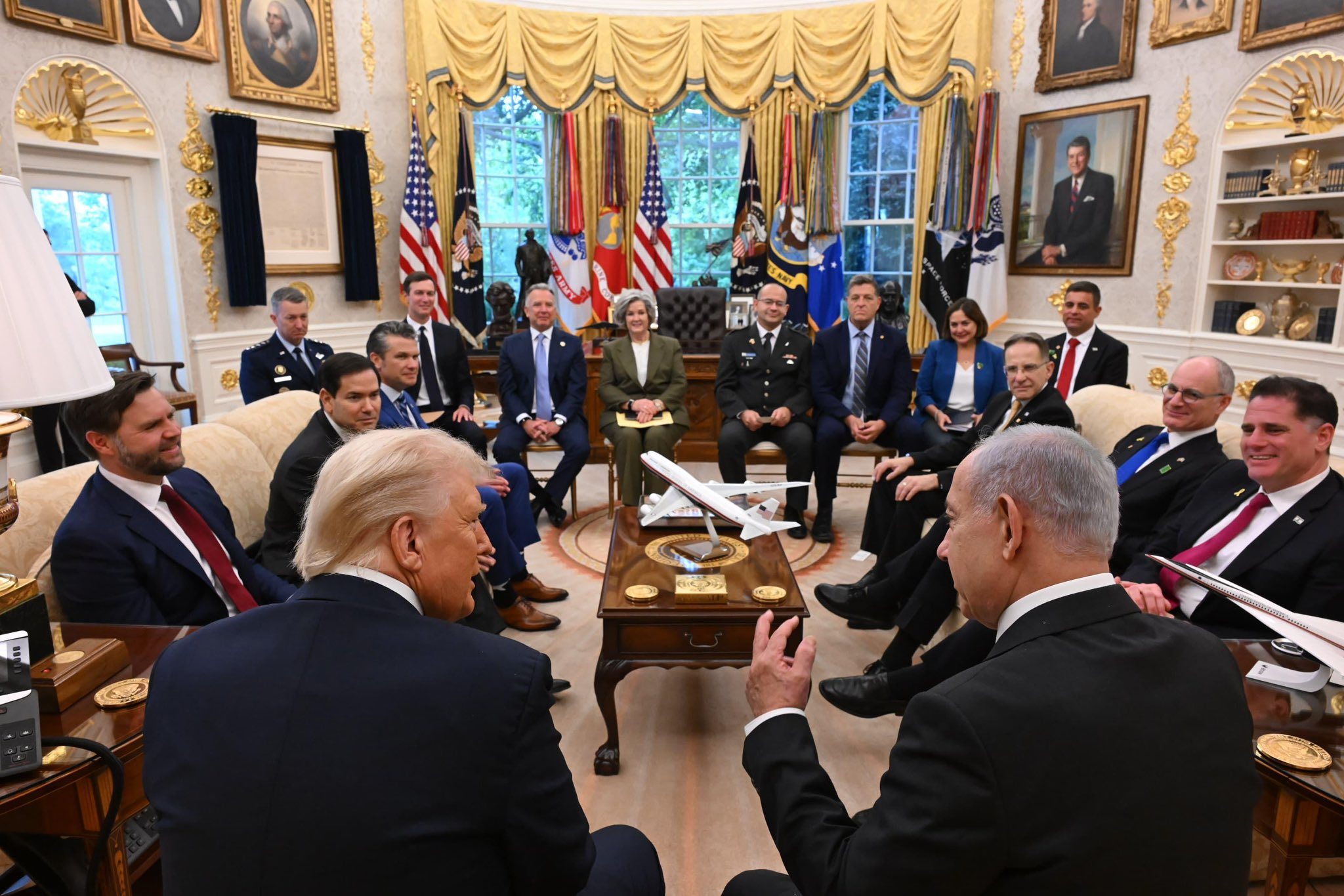Middle East Reset? Trump, Netanyahu Pitch Ceasefire Plan to End Gaza Conflict
In a high-stakes meeting at the White House, U.S. President Donald Trump and Israeli Prime Minister Benjamin Netanyahu revealed a joint proposal aimed at ending the devastating war in Gaza.
Their 21-point plan outlines an immediate ceasefire, the withdrawal of Israeli forces to a pre-agreed line, and the transformation of Gaza into a “deradicalized terror-free zone.”
 |
| Image Source: Benjamin Netanyahu |
Trump opened the press conference by thanking Netanyahu and highlighting their past cooperation on Middle East policy.
He praised the leaders of Saudi Arabia, Qatar, the UAE, Indonesia, and Pakistan for their support in the diplomatic process, and emphasized his confidence in securing a peace deal.
Netanyahu, walking a tightrope between international pressure and domestic political fragility, nodded in agreement.
But beneath the optics, tensions continue to linger.
Netanyahu’s visit comes in the wake of a controversial Israeli strike on Qatari soil that killed a Qatari serviceman and several Hamas negotiators earlier this month.
Under international pressure, Netanyahu issued a rare public apology--an apparent concession to keep Qatar engaged as a key mediator.
The White House confirmed the apology and reiterated Qatar's continued role in facilitating talks.
President Trump Participates in a Press Conference with the Prime Minister of the State of Israel https://t.co/Gazc335nGb
— The White House (@WhiteHouse) September 29, 2025
The proposed ceasefire, while detailed, lacks confirmation from Hamas or official endorsement from the Israeli security establishment.
On the ground, Israeli forces intensified their operations in Gaza City, including around al-Shifa Hospital.
More than 33 Palestinians were killed today alone, according to local health authorities.
Meanwhile, mass protests erupted in Tel Aviv and outside the White House, as hostage families and anti-war demonstrators demanded action.
Trump’s plan has triggered mixed responses globally. Arab and Muslim nations cautiously welcomed elements of the framework.
But critics remain skeptical, pointing to Netanyahu’s reluctance to make meaningful concessions in past negotiations.
There is also growing concern within Israel, where far-right factions threaten to collapse the coalition if the ceasefire is signed.
Trump, meanwhile, is seeking a major diplomatic win ahead of the 2026 U.S. elections.
Economic alarm bells are also ringing.
The Bank of Israel warned that continued global isolation due to the war could damage the country's credit rating, scare off foreign investment, and destabilize the shekel.
As Israel's reputation takes a hit, and U.S. pressure grows, Netanyahu is now faced with one of the most politically perilous decisions of his career.
Whether this plan results in peace--or becomes another chapter in a long history of unfulfilled roadmaps--will depend on what happens next, both at the negotiating table and in the streets of Gaza.
